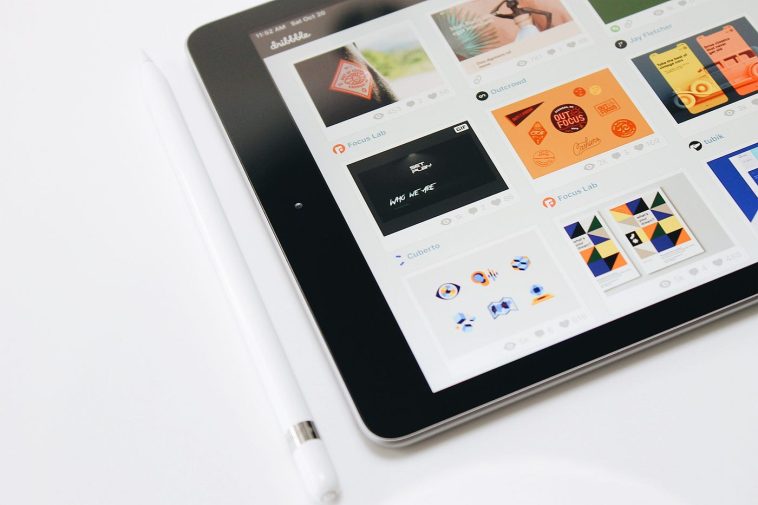If you have a blog and you’re not selling digital products yet, you’re probably leaving money on the table.
A blog isn’t just a space for sharing ideas or writing stories—it can also be your online store.
The great thing about digital products is that you only create them once, and then you can sell them again and again without needing to restock or ship anything.
I’ve seen many bloggers turn their side hustle into full-time income just by adding digital products to what they’re already doing. And the best part? You don’t need a massive audience or a tech background to get started.
In this guide, I’ll walk you through the whole process—how to come up with the right product, how to build it, where to sell it, and how to market it in a way that feels natural (not salesy).
I’ll also answer common questions and share tips I’ve learned from working with creators who sell everything from ebooks and courses to Canva templates and Notion planners.
What Counts as a Digital Product?
A digital product is anything you can sell online that people can download or access digitally. No shipping, no inventory, no packaging.
Here are a few examples:
Ebooks
Online courses
Digital templates (Notion, Canva, Google Docs)
Printables (like planners or worksheets)
Stock photos or music
Spreadsheets and trackers
Private podcasts or email series
Membership access to gated content
If it lives on your computer and someone else finds it useful, you can probably sell it.
Why Should You Sell Digital Products on Your Blog?
Selling digital products through your blog has a few key advantages:
1. It’s Passive (After the Initial Work)
You only create your product once. After that, it keeps selling—even while you sleep.
2. It Builds Your Authority
Offering something useful shows that you know your stuff. It helps you go from “blogger” to “expert.”
3. You Own the Platform
Social media can change its rules overnight. Your blog? You control the content, the pricing, and the experience.
4. You Can Start Small
You don’t need a huge audience. You just need the right offer for the right readers.
How Do I Sell Digital Products on My Blog?
Step 1: Pick the Right Product
Start with your readers. What are they always asking you? What problems do they want to solve? That’s where your best product idea lives.
Some real examples:
A food blogger creates a 7-day meal prep guide.
A productivity blogger sells a Notion daily planner.
A travel blogger offers editable itinerary templates.
Pro tip: Use Google Search Console to find out what people are already looking for on your site. That’s gold.
Step 2: Create the Product
You don’t need fancy tools. Use what you already know:
Ebooks: Google Docs or Canva
Templates: Notion, Canva, Excel
Courses: Loom or Zoom + Gumroad or Teachable
Make sure it looks clean and is easy to use. If you’re not a designer, grab a free Canva template and start from there.
Helpful tools:
Step 3: Set Up a Sales Page on Your Blog
Your blog is your home base. Use a page builder or just a regular blog post to create a simple landing page.
What to include:
A strong title
A short problem/solution intro
What they’ll get
Screenshots or previews
Testimonials (if any)
Clear pricing
A call-to-action button
If you’re using WordPress, you can use plugins like:
Elementor
WooCommerce
Easy Digital Downloads
Or skip the tech completely and use:
These platforms let you upload your file and start selling in minutes.
Step 4: Connect Payment and Delivery
People need a simple way to pay you and get their product instantly.
With platforms like Gumroad or Payhip, this part is done for you.
If you’re selling from your own site, make sure you connect:
Stripe or PayPal
A delivery system (like a link in the confirmation email, or automatic file download)
Step 5: Promote It (Without Feeling Weird)
Now comes the part where most people freeze. But promoting your product doesn’t mean spamming your readers. If your product solves a real problem, sharing it is helping.
Ideas to promote:
Add it to your blog menu
Mention it in related blog posts
Add it to your email newsletter
Create a blog post around the problem it solves
Share your process on social media
Remember: the more helpful your product feels, the more natural it is to share it.
Step 6: Get Feedback and Improve
After your first few sales, ask for feedback:
Was the product easy to use?
Did it solve your problem?
What would you change?
You can use that feedback to improve the product or create a new one. Some bloggers create whole product libraries this way—starting with one small item and building from there.
Real Success Stories (To Keep It Real)
- Elise Darma sells Instagram content calendars and templates. She started by offering them in her blog posts and made over $100,000+ in digital product sales.
- ByRegina turned her blog into a business academy with courses, planners, and workshops.
- Chaitra from PinkPot Studio sells Canva templates and made $10,000+ in a month from a tiny audience using just blog traffic and email.
FAQs
Do I need a large audience to make sales?
No. What matters more is having the right product for the people already visiting your site.
Can I sell digital products without registering a business?
Yes, in most cases you can start as an individual (sole proprietor), but always check your country’s local tax laws.
What file types work best?
PDFs for ebooks, PNGs or JPGs for printables, .zip for bundles, and shareable links for Notion or Canva templates.
Can I sell on both my blog and a platform like Gumroad?
Absolutely. You can embed Gumroad links on your blog for a seamless experience.
Conclusion
Selling digital products on your blog isn’t just for big-name influencers or tech-savvy creators. If you have something helpful to offer, your blog is the perfect place to sell it. Start simple, test things out, and listen to your audience.
You don’t need to be perfect—you just need to be helpful.
So, what kind of digital product would your blog readers love to buy from you?





GIPHY App Key not set. Please check settings